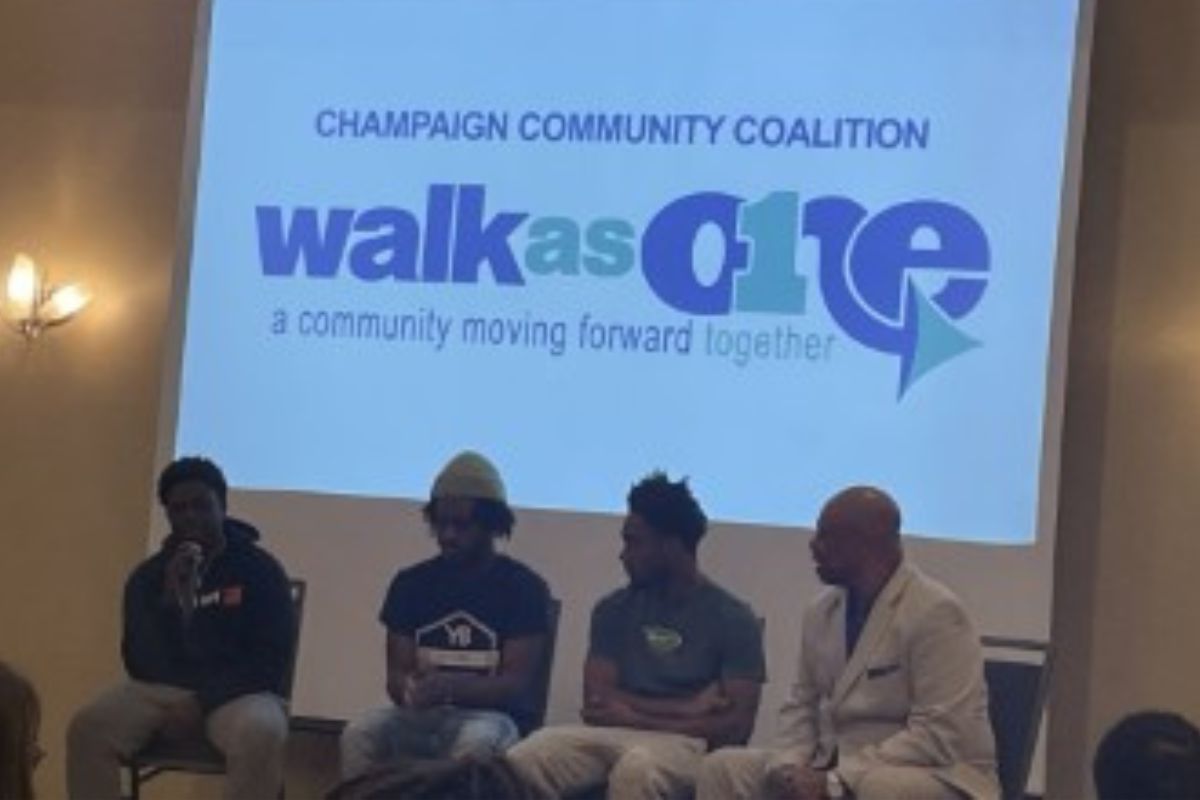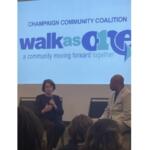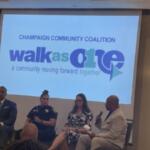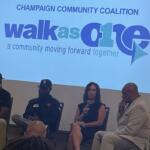CHAMPAIGN, IL (Chambana Today) — A powerful community coalition gathered this week in Champaign to address a crisis that’s gripping the city: youth violence. The meeting, moderated by Tracy Parsons, Community Relations Manager for the City of Champaign, brought together local leaders, law enforcement, youth advocates, and young people themselves to discuss how to intervene earlier, support families more deeply, and prevent the next tragedy.
“We’ve lost three young men under the age of 17 to gun violence this summer,” Parsons said, his voice heavy with emotion. “They weren’t in school, but they were engaged in the community. Still—the streets got them.”
The meeting included four panels: one with Champaign County State’s Attorney Julia Rietz, a law enforcement and juvenile justice panel, a group focused on support services for youth and families, and a panel featuring young men who are working to turn their lives around.
“You Can’t Save Everyone… But You Can Still Try”
State’s Attorney Julia Rietz offered a sobering view from inside the justice system. “It seems like so many young people who walk into court is either carrying a weapon or getting high,” she said. “There was a case where a man beat his girlfriend and drove around town with her in the trunk. Another where an uncle beat a toddler to death. One five-year-old victim had to testify in court.”
Rietz and others emphasized the escalating seriousness of juvenile cases, including police chases involving 12-year-olds, group assaults on buses, and teens testing positive for cannabis while on probation. Still, she acknowledged the emotional toll on those trying to help. “I told Tracy years ago—‘you can’t save every kid,’” Rietz recalled.
“We’re All in This Fight”
The coalition centered around one key demographic: 12- to 15-year-olds who are out of school. “How do we coordinate agencies?” Parsons asked. “How do we not just support kids—but support their families? These families have histories, legacies of incarceration. We’re trying to break that cycle.”
One approach, speakers agreed, is reaching families who don’t even realize support exists.
“We have a resource-rich community,” said one service provider. “But too many families don’t know what’s out there. That has to change.”
“They Gave Into Peer Pressure. Now They Say ‘No.’”
Three young men—Travon Gibson, Davon Gibson, and Gabriel Manning—shared how programs like Operation Hope helped them change course. “I gave into peer pressure,” Davon said. “I was doing things I didn’t want to do. Now? My answer is ‘no.’ But I couldn’t say that before. Davon added, “I didn’t know what to do with money. I didn’t even know how to open a bank account. They taught me that.” “The program opened my eyes,” said Travon. “I’m moving away from all that now.”
When asked what they needed from the community, Davon asked bluntly: “Why is it easier for a man of any race to get a gun than a job?”
Law Enforcement: Focus on Prevention
The final panel included Urbana Police Chief Bryant Boone, Champaign Police Lt. Thomson, and Shannon Siders, Director of Probation and Court Services for Champaign County.
“Our focus has to be prevention, intervention, and enforcement—in that order,” said Siders. “If a child experiences trauma, we need to work with them at home and school—not just send them to detention.”
Siders acknowledged that juvenile detention—meant to be a short-term solution—has become a longer-term holding space for some. “They’re bored. They feel like they have less to lose. So we offer mindfulness groups, ‘street college,’ anything to help.”
She added that probation staff is stretched thin. “This is more than we saw 10 or 15 years ago. But we’re still showing up.”
“Teach Them to Take a Breath”
The Youth Assessment Center, which saw 450 referrals pre-pandemic, now averages around 300. Staff have shifted from simply referring kids to programs to actively connecting with both the youth and their families.
“They need people to show up consistently,” said a case manager. “If you can’t be there, they need to know why.”
Kids today face a web of challenges—poverty, housing instability, trauma, peer pressure, and generational cycles of incarceration. But leaders remain hopeful. “This isn’t hopeless,” Parsons said. “But we need to engage. We need to care—unconditionally.”











